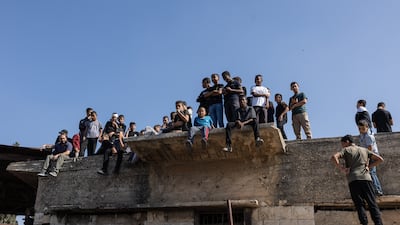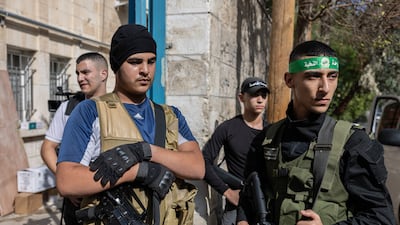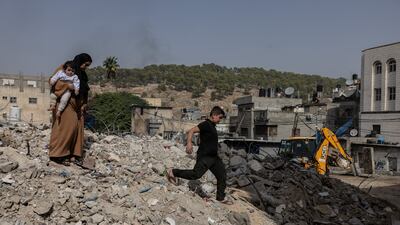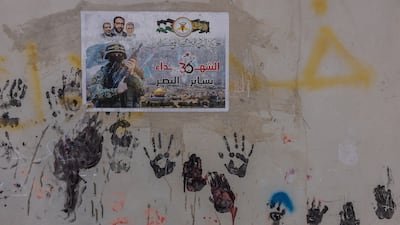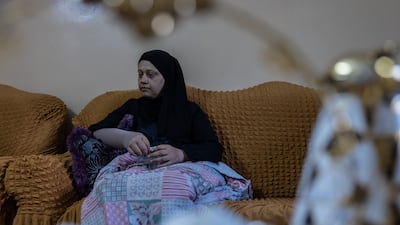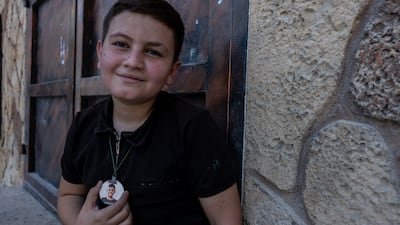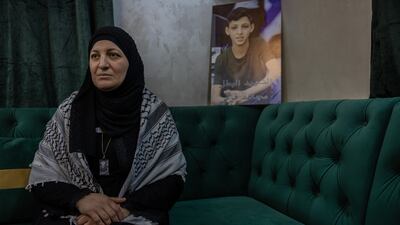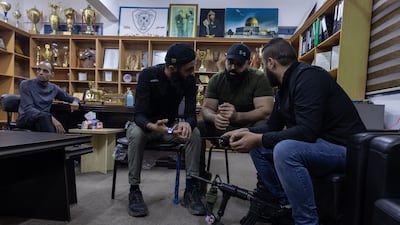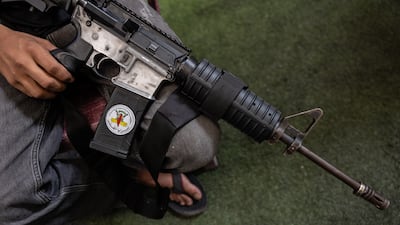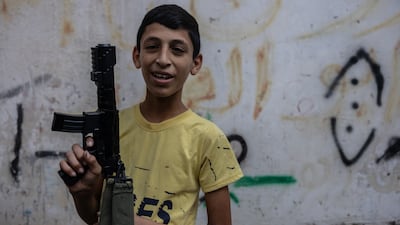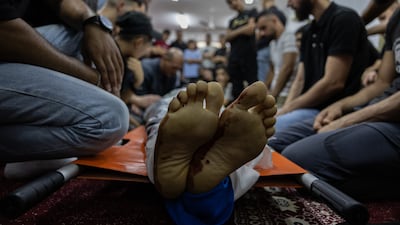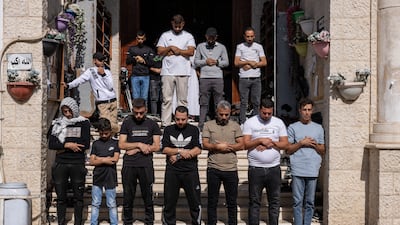Live updates: Follow the latest news on Israel-Gaza
The sirens echo from every mosque’s loudspeaker, their sound piercing the quiet night in Jenin, announcing the imminent arrival of the Israeli army.
Those who live in the city’s refugee camp here in the northern occupied West Bank know the drill: many families hastily pack up a few belongings, jolt their children out of bed, then escape on foot or in their cars. During the now almost nightly army raids, it’s better to be anywhere but the camp, residents say.
As civilians flee or bunker up, the men who call themselves Jenin’s resistance fighters prepare to face the Israeli soldiers – often what follows is a battle that lasts all night: rounds of artillery, machinegun fire, Israeli drone strikes.
Daybreak reveals deaths, bulldozed streets, bullet-riddled homes. Amid all this, people are trying to navigate daily life: children sit outside or play football with their friends; men meet for sugary black coffee after work, women chat with their neighbours by the roadside. But fear and exhaustion are widespread.

Since the Hamas attack on Israel and the subsequent war in Gaza, raids and arrests throughout the West Bank have picked up, as have violent attacks perpetrated by Israeli settlers living illegally in the territory.
In the refugee camps – most of which were set up shortly after the Nakhba – the forced displacement of Palestinians upon the creation of the state of Israel in 1948 – resistance is growing.
Tahani Mustafa, the International Crisis Group’s London-based senior Palestine analyst, said that there likely are no more than 40 fighters per camp, but that Israel might be opening up more fronts than they can manage.
“They might be creating a situation they could be losing control over,” Ms Mustafa said. “These fighters feel like they are being deprived of their freedoms, while Israel is getting away with impunity,” she added.
“Allegiances are however very fluid and constantly shifting, depending on who is willing to equip and support the fighters."
For Jenin’s residents – the camp with its narrow clusters of stone houses is home to some 11,000 people – the constant cycle of violence has become unbearable.
“Life here is terrifying at all times. There are drone strikes; there’s death everywhere,” Kefah Amouri, 49, a mother whose 26-year-old son Weam was killed during a recent raid, told The National.
She sits at home, surrounded by friends and relatives, mourning the loss of her son. “At night, we don’t sleep because we worry that the Israeli army might come. During the day, we watch television to keep updated on the situation in Gaza. I often wonder if we’ll be next, if this sort of war is coming our way,” she added.
In Nur Shams, another West Bank refugee camp, a group of Palestinian Islamic Jihad fighters sit under several large plastic sheets draping from the houses that line the narrow alleyway.
The gun-clad men aren’t sheltering from the sun, but from Israeli surveillance drones and fighter jets. On October 19, the camp – home to some 14,500 people – was struck by an air strike and raided by the Israeli army, leaving 13 people dead, including five children.
“Those who suffer most are always the poor, always civilians,” Abier Shole, 42, said. Now a mother of nine, her 16-year-old son Mujahid was killed in the October 19 air strike.
“He was just a child,” she said, determined to stay composed. “What happened to me is still easier to process compared to what is happening to people in Gaza. She is sitting in her living room surrounded by family and friends who came with their condolences. A poster of her late son is propped up on the wall; Ms Shole carries the same image of her child like a pendant around her neck.
Nearby her house, a small group of resistance fighters are still gathering, including 18-year-old Ahmet, who is using a pseudonym to hide his identity. He’s wearing fake Adidas flip flops and a camouflage baseball cap.
A pieced-together M4 series rifle that he says was given to him by the Palestinian Islamic Jihad leadership in the camp rests on his lap. Several other people have gathered: elderly men holding prayer beads in their hands, women carrying bags full of groceries.
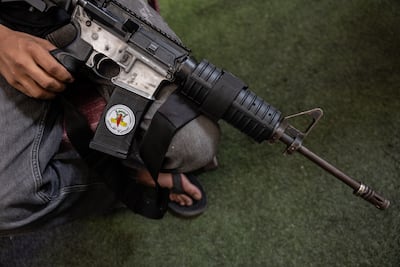
The distinctive sound of a fighter jet in the sky can be heard as the crowd smiles nervously. “It’s just a commercial plane,” one man said, trying to calm everyone’s nerves, but the fighters quickly disperse the gathering: too many people – too many phones that could be tracked – in one place.
Ahmet turns around before leaving, saying that he was still full of hope for a better future. “This weapon I hold now – I don’t want it. I want the occupation to end. I want peace,” he said.
